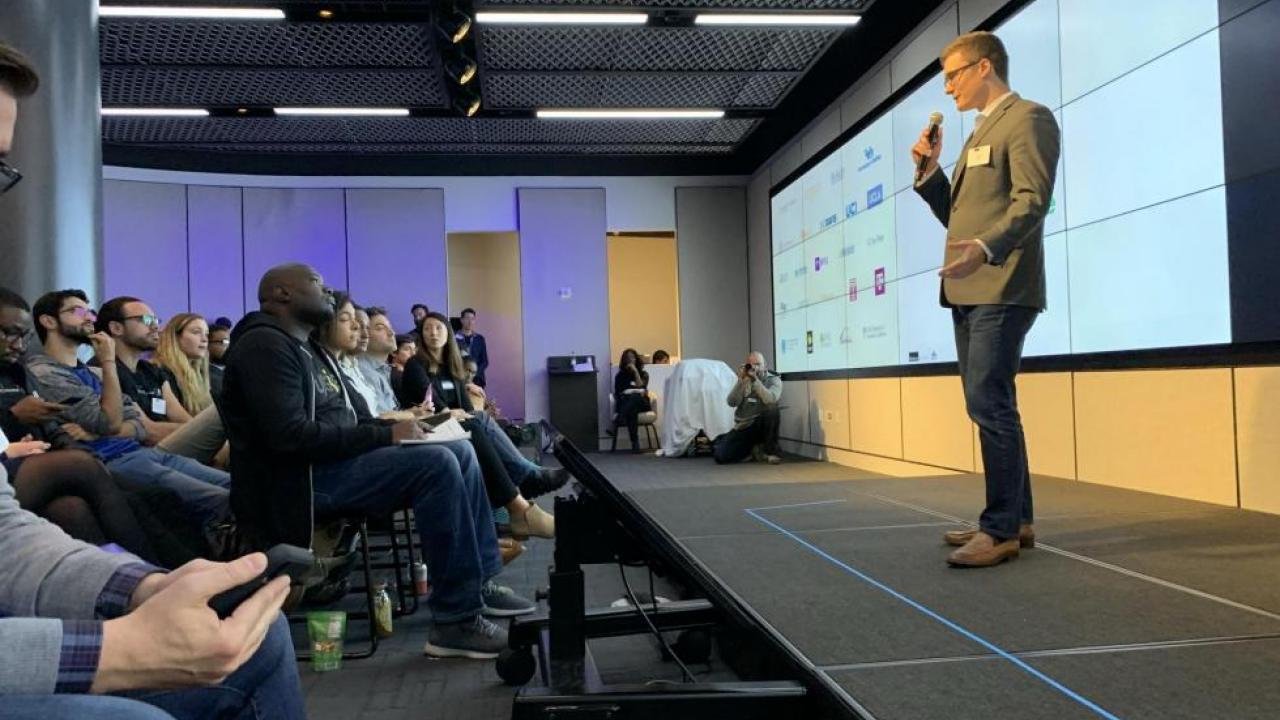
My Final Round Pitch at Launchpad Propel
Lessons more valuable than prize money
The prize money escaped us, but the opportunity to pitch pays off in countless other ways.
My heart pounded, my head throbbed, and feverish chills gripped me as I anxiously awaited my turn to pitch. As a finalist at Blackstone LaunchPad Powered by Techstars, RePurpose Energy was one of six teams competing for a $10,000 prize, and I felt less than ready to rise to the challenge.
Throughout my 14 months as co-founder and chief operating officer of RePurpose Energy, I have given countless pitches.
I live and breathe our team’s vision of reusing batteries from electric vehicle batteries to store solar energy. I have an unwavering passion for our mission to profitably enable the clean energy transition.
Unfortunately, preparation trumps both experience and passion—particularly when you have only three minutes to win over a panel of expert judges.
Halfway through a week packed with meetings, contract negotiations and grant proposals, I boarded a redeye flight from Sacramento to New York City. I arrived feeling exhausted, miserably ill and entirely uncertain about how to condense our business model and traction into such a tight window. I also felt mounting pressure to represent not only our startup but also UC Davis at a prestigious event attended by hundreds of entrepreneurs and mentors from across the country. Throughout the conference, I downed vitamin C, caffeinated heavily and gradually organized the key points I wanted to convey in my moments on stage.
Immediately before my pitch, I recalled the afternoon’s keynote speech by Narie Foster, co-founder of a successful fashion startup.
One of her themes was “Nothing Below You, Nothing Above You”. Her point was that all entrepreneurs feel at times wildly overqualified for some responsibilities (e.g., menial manual labor) and woefully underqualified for others (e.g., raising venture capital). Narie encouraged us to embrace and learn from both the highs and lows.
In an abstract sense, brief moments of the conference felt below me, such as struggling through intensive mentoring sessions when all I wanted to do was rest my sore throat and practice my presentation. Sure enough, every session yielded valuable insights. The Grand Prize, however, felt well above me that day. My competitors were intimidating, my energy was low, and my pitch still lacked polish. With Narie’s words in mind, I leaned into that discomfort, rose to the stage, and shared our startup’s story.
Ultimately, the prize money escaped us, but the opportunity to pitch paid off in countless other ways. The judges offered valuable feedback and introductions. The platform served to connect us with potential customers, partners and investors.
Perhaps most importantly, the experience offered a powerful reminder of the value of preparation.
I had given similar presentations, but never a three-minute version without slides to that audience under those judging criteria. My insufferable cold then amplified the effects of this subtly novel challenge on my confidence. In other words, each pitch is unique, and each calls for careful practice. My ideal preparation routine includes outlining key points, memorizing transitions, recording a dry run, listening to it repeatedly, then rehearsing in front of peers or mentors. Your process may differ.
Find what works best for you and don’t cut corners.
The extra effort will come in handy when you find yourself feeling sick, sleep deprived and underqualified on pitch day.